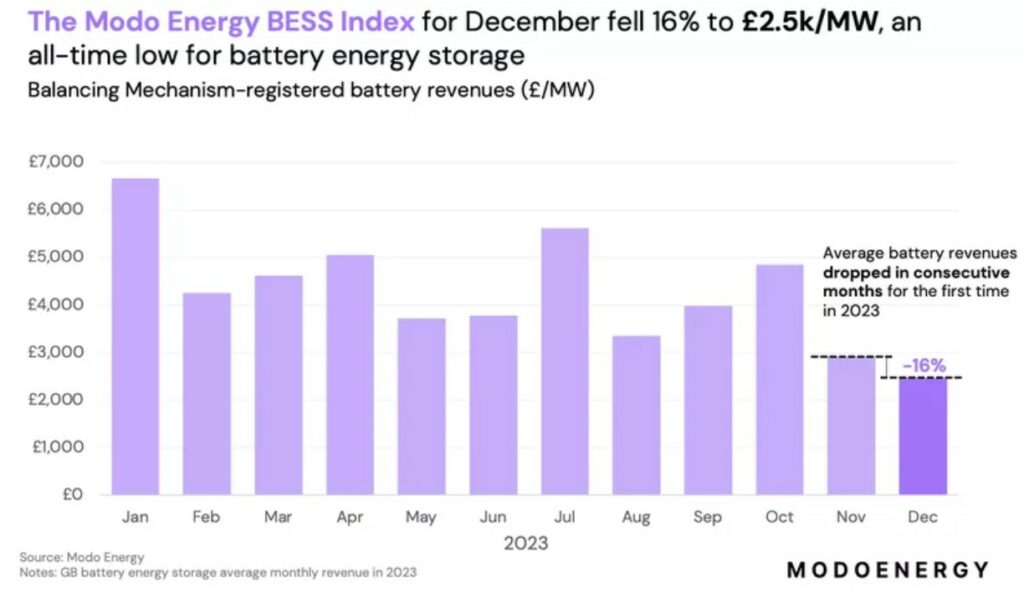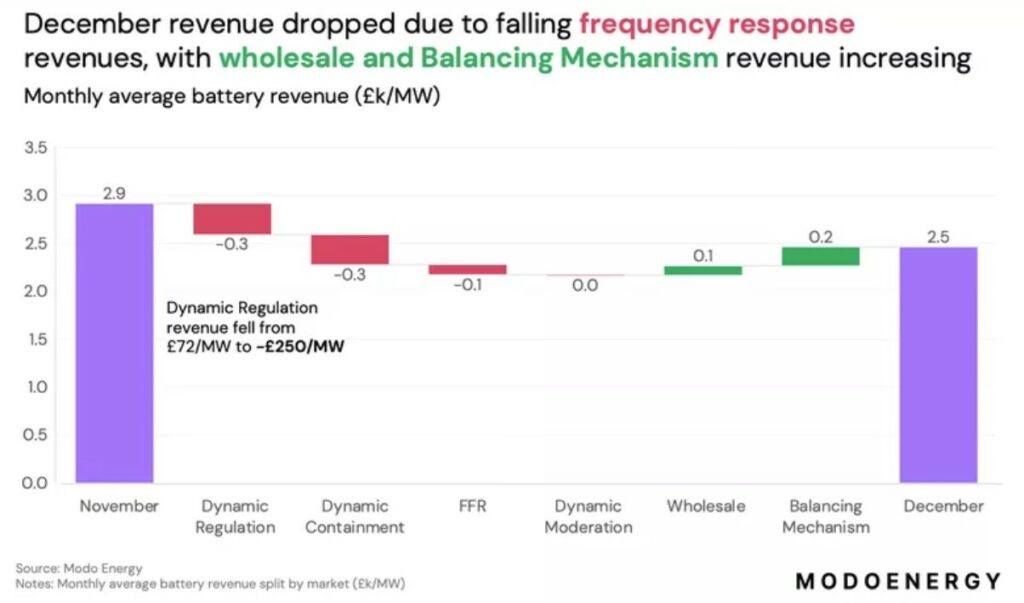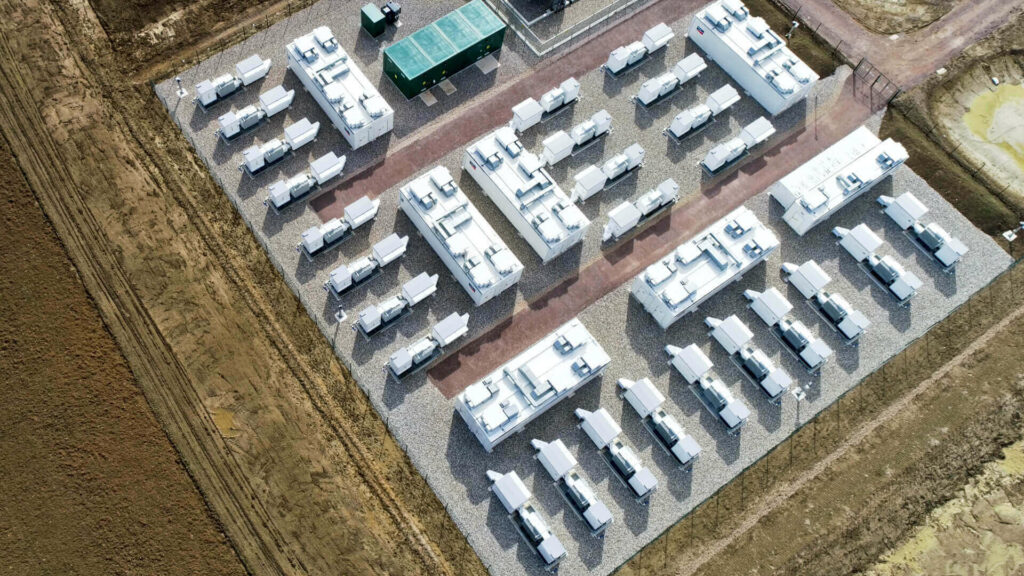Average battery energy storage revenue for the balancing mechanism fell by 16% in December 2023 according to Modo Energy, to £2.5k/MW.
The energy consultant confirmed that the fall was a continuation of frequency response revenues falling since the launch of the enduring auction capability, a mechanism designed to help deliver co-optimised procurement for day-ahead frequency response and reserve products, in November.
Interestingly, Modo’s research indicates that assets over 1.5 hours in duration earned around £3.3k/MW on average, whereas assets under 1.5 hours saw revenues of around £2.1k/MW.
This caps off what could be seen as a stutter in the battery energy storage market with average revenue levels for batteries having dropped by 67% year-on-year (YoY) to £51k/MW. You can find a monthly breakdown of the revenue levels below.

Why did battery revenues fall?
With these falling revenues, it is important to identify why this might be the case. But to start it is important to note that this fall in revenue was not exclusive to battery energy storage with frequency response revenues having dropped by 44% from November to £590/MW. Modo stated that this was the second consecutive month in which revenues fell by over 40%.
Modo also noted that batteries paid to perform dynamic regulation, a mechanism implemented to assist National Grid ESO in keeping frequency within operational limits, with net revenue from the high and low service dropping to -£250/MW, a £320/MW decrease from November.

Alongside overall frequency response revenues falling, the average frequency response clearing price saw a 22% drop from all services in December. Dynamic regulation also averaged its lowest price in 2023 at £6.36/MWh.
Modo also explained that battery storage is also exporting more in wholesale markets. Due to low market volatility, day-ahead wholesale spreads fell by 14% to £66/MWh alongside an average maximum price which was 25% lower on each day than in November.
Modo also touched on the balancing mechanism and the impact technical issues regarding the Open Balancing Platform had on revenues. The platform, which introduced bulk dispatch functionality, allows for more instructions to be issued to batteries at any one time but, due to technical issues, the control room reverted back to legacy systems for dispatching batteries on 15 December.
Despite the issues, daily dispatches averaged almost 1GWh, a 50% increase on November’s figure.
Modo also added that lower frequency response prices and increased wholesale and balancing mechanism activity meant over 75% of battery revenue came from merchant markets in December. The organisation said this is the highest proportion of revenue ever from these markets, with the previous record being 55% in November 2023.





